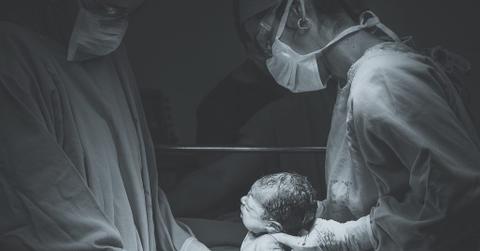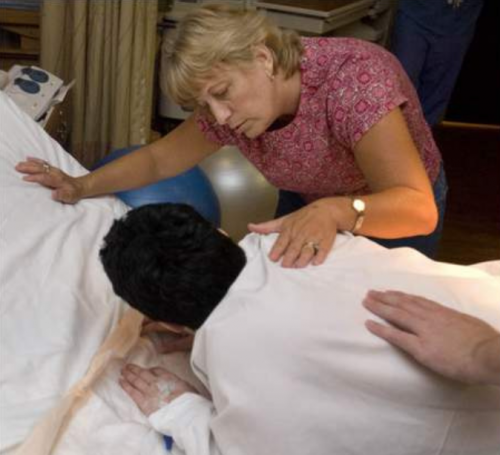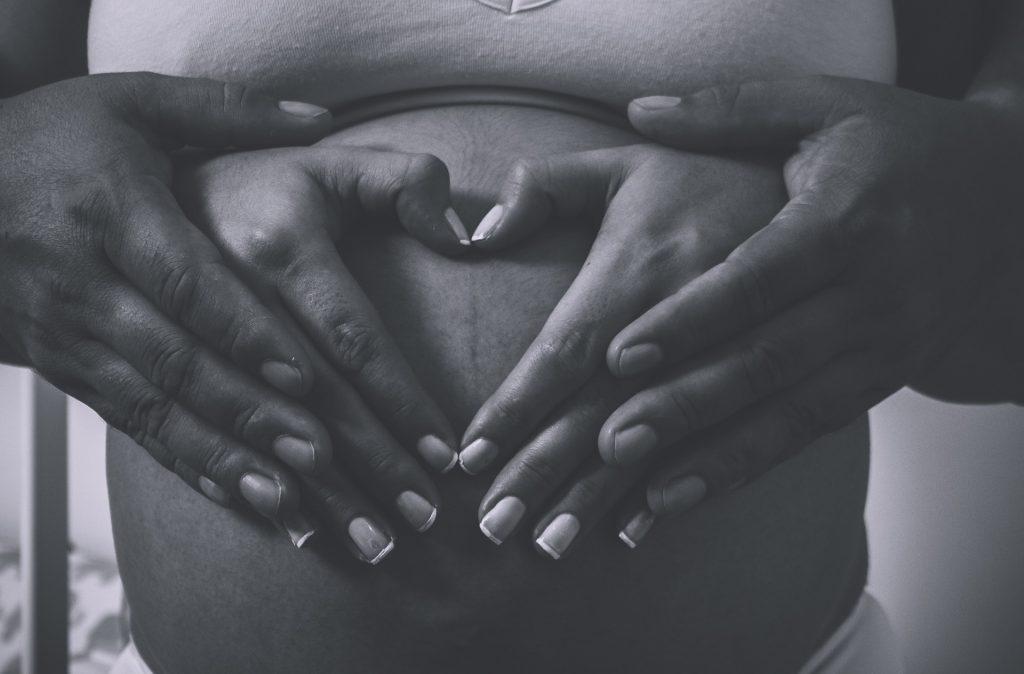This Is How Doulas Are Protecting Women From Sexual Assault

Growing up, many of us learned that doctors and other medical professionals are responsible for the well-being of patients who seek care. Unfortunately, history has shown that hasn’t always been the case, especially for Black Americans, minorities and immigrants. While the medical industry has come a long way from its previous practices, there are still discriminatory, violent and unethical practices that take place in one of the most precious areas in hospitals – the delivery room. Thankfully, doulas are stepping in to protect women in labor from getting violated (or assaulted) by medical professionals.
According to dono.org, “there are two types of doulas: birth and postpartum…Doulas are trained professionals who provide continuous physical, emotional and informational support to a mother before, during and shortly after childbirth to help [the mother] achieve the healthiest, most satisfying experience possible.”
Unlike midwives, who are trained medical professionals, doulas offer nonmedical techniques during labor such as breathing techniques, massage techniques and ways to position their bodies, according to healthline.com. However, as the profession has (re)grown, the role of doulas is expanding into protectors with the rise of obstetric violence.
According to a journal from Taylor and Francis Online, obstetric violence is when health institutions and healthcare personnel [violate], bully, and coerce pregnant women during [and sometimes before] birth. This also includes coercive policies in which court orders are given to obstetrician-gynecologists’ to participate in forced c-sections, according to the American College of Obstetricians and Gynecologists.
The most recent case of obstetric violence is the $16M lawsuit won by Caroline Malatesta against Brookwood Medical Center in Birmingham, Alabama, where a nurse held Malatesta baby’s head into her vagina to prevent her from delivering (among other atrocities). This caused Malatesta to develop pudendal neuralgia, which prevents her from having sex [and future children], according to a detailed account featured in Cosmopolitan.
Another case happened in 2013 where a young black woman named Kimberly Turbin had an episiotomy (a surgical cut made along the perineum – an area between the vagina and anus – during childbirth to help with a difficult delivery) done by her obstetrician without her consent. According to Quartz, Turbin and the obstetrician settled out of court but she still has chronic pelvic pain, difficulty having sex and other long-term issues due to the episiotomy. This case is significant because a judge publicly acknowledged that a doctor performing an episiotomy without the patient’s consent could be [considered] an act of violence rather than a medical malpractice.

Unfortunately, birth doulas witness this type of treatment on a regular basis. According to an article on Broadly, “Emily Varnam, a doula and reproductive health educator in Detroit who previously worked in New York City, states that her job could be better described as a ‘bodyguard’”.
“You pretty much, one percent of the time, see women getting the care that is appropriate for them…Whether that’s from lack of evidence-based care or lack of compassion, or lack of respect for the human race, you pretty much just never see [healthcare] that feels appropriate. Either it’s how they’re spoken to, or nonconsensual vaginal exams. It’s nonconsensual episiotomy or coercion, or bullying, or scare tactics…” Varnam recalls witnessing one particularly disturbing incident with a client where an obstetrician entered a labor and delivery room wearing street clothes: Without introducing himself to the client or requesting permission, the doctor inserted his fingers into her vagina and attempted to manually widen her nearly dilated cervix. Varnam says her client screamed in pain and protest, but it took Varnam’s insistence for the doctor to stop. “That happens to me all the time,” Varnam says. “The amount of times I have to say, ‘She’s saying no, and you have your hand in her vagina. You need to take it out’ is unreal. There cannot be that kind of disregard for consent.”
Unfortunately, women who have been deeply affected by obstetric violence, are women of color. In the Listening to Mothers survey, about one in five black and Hispanic women reported poor treatment from hospital staff due to race, ethnicity, cultural background or language, as compared to one in 12 white women, according to Quartz.

Ravae Sinclair, a birth doula and attorney in Washington, D.C., who has attended births for nearly 16 years, says she notices providers being even more authoritarian than usual in their behavior when attending to families of color, giving them orders, questioning their choices, and assuming that couples are unmarried or uneducated, according to Broadly.
Women of color specifically fall victim to obstetric violence in the form of coercive court order c-sections. According to the American College of Obstetricians and Gynecologists, court-ordered cesarean deliveries have been obtained against women of color or of low socioeconomic status. In a review of 21 court-ordered interventions, 81% involved women of color and 24% involved women who did not speak English as a first language.
C-sections carry risks of complications and death that can be three times higher than vaginal birth. This is even higher for Black women in the United States since they are three to four times as likely to die from pregnancy or childbirth-related causes than white women.
Although obstetric violence has long-term effects, most women do not report medical professionals who violated them, especially if the baby is healthy, according to Taylor and Francis Online. These women prefer to focus on motherhood and block out the horrific experience.
Even Caroline Malatesta originally did not want to press charges against the Brookwood Medical Center despite her injury. According to Cosmopolitan, she only wanted answers to why she was ill-handled during her labor. But when the hospital administration declined to have a meeting with her regarding her complaints, she realized the only way she would be heard was to file a lawsuit.
To confront maternal mortality rates and obstetric violence, women are turning to activism. A resolution introduced by Congresswoman Elma Adams and Senator Kamala Harris, which discussed some of the causes of dispersing maternal health outcomes, health inequities and the causes of black maternal & infant mortality rates. Congresswoman Robin Kelly, who introduced the MOMMA Act, a piece of legislation that [focuses] on the specific needs of Black woman and calls out the poor health outcomes seen among Black women. There are also organizations like Black Mamas Matter Alliance, Improving Birth and Birth Monopoly that are working to shed light on the complexities of maternal health and obstetric violence.
Unlike Venezuela and Argentina, the laws in the United States currently do not recognize obstetric violence, according to Taylor and Francis Online. Therefore, the best approach for pregnant women to take is to obtain as much information about healthcare, hospital practices and reproductive health as possible. Birth doulas often have the most knowledge around these topics and will likely inform their clients about local facilities. According to Broadly, Mychal Balazs, a Los Angeles–based doula, states “It’s a hard place to be because as a certified, experienced doula, it is not your job to know what hospitals you’re more likely to be raped at. But if I know something, I tell it like it is.”
If you or someone you know has experienced obstetric violence, please seek legal counsel and resources from organizations like Black Mamas Matter Alliance, Improving Birth and Birth Monopoly for support. If you’re interested in finding a doula, please click here to find one in your area.
Your life, your voice, and your body matters!






